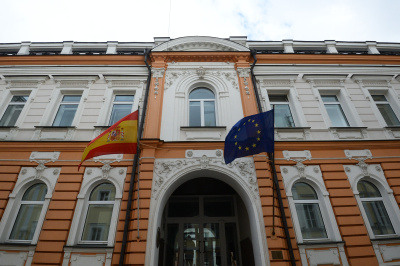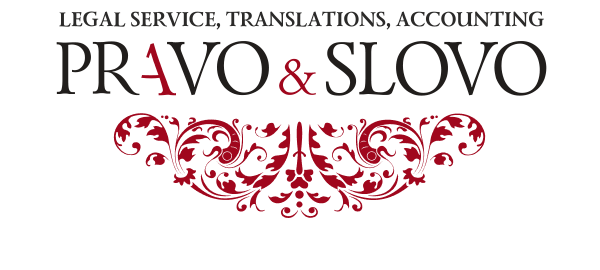Professional Translation of Texts from English
In the context of globalization and active interaction between countries, the translation of texts from English into other languages and vice versa has become an integral part of international communication. English, being one of the most widely spoken languages in the world, is used in various fields: from legal and medical documents to technical manuals and literary works. A translator specializing in English translation must possess not only deep linguistic knowledge but also an understanding of the specifics of each field they work with.
Translation from English: Legal Texts
Legal translation from English is one of the most complex and responsible tasks. Legal documents such as contracts, agreements, court decisions, patents, and certificates require not only accuracy in translation but also adherence to legal terminology and legislative norms. A translator working with legal texts must be familiar with the legal systems of both the source language country and the country for which the document is intended.
A distinctive feature of legal translation from English is the need to adapt the text to the legal realities of another country. For example, terms used in English law, such as "trust" or "common law," may not have direct equivalents in other languages. The translator must find the most suitable equivalent that is both understandable and legally correct. Additionally, legal translation from English often requires notarization, which adds an extra layer of responsibility.
Translation from English: Medical Texts
Medical translation from English is another area where accuracy and professionalism are critical. Medical documents such as doctor's reports, prescriptions, medication instructions, scientific articles, and research papers require not only linguistic skills but also deep knowledge in medicine and pharmacology. A translator working with medical texts must be attentive to details, as an error in translation can have serious consequences for a patient's health.
Translation from English in the medical field also requires confidentiality. The translator must not only accurately convey information but also ensure the protection of patients' personal data. This is especially important when translating medical records, test results, and other documents containing confidential information.
Translation from English: Technical Texts
Technical translation from English involves the translation of documents related to technical documentation, manuals, blueprints, specifications, and other materials. A translator working in this field must not only know the language but also understand technical terms and concepts. This is particularly important when translating equipment operating instructions, technical guides, and other documents used in industries such as manufacturing, construction, IT, and others.
A distinctive feature of technical translation from English is the need to adhere to strict terminology and text structure. The translator must not only translate the text but also preserve its logical structure so that it is understandable to specialists in the field. Additionally, technical translation often requires the use of specialized software and tools that help simplify the translation process and improve its accuracy.
Translation from English: Notarized Documents
Notarized translation from English involves the translation of documents that require notarization. These may include birth certificates, marriage certificates, diplomas, certificates, contracts, and other documents that have legal force. A translator working with notarized translations must not only accurately translate the text but also comply with all formalities required for notarization.
A distinctive feature of notarized translation from English is the need for strict formality and precision. The translator must not only translate the text but also ensure that it complies with the legal requirements of the country for which the document is intended. Additionally, notarized translation requires confidentiality, as it involves personal data.
Translation from English: Literary Texts
Literary translation from English is the translation of literary works, which requires not only language proficiency but also a creative approach. A translator working with literary texts must be able to convey the author's style, mood, and emotions while preserving the originality of the work. This is especially important when translating poetry, prose, plays, and other literary genres.
A distinctive feature of literary translation from English is the need to preserve the author's style and individuality. The translator must not only translate the text but also adapt it to the cultural characteristics of the country for which the work is intended. This requires not only linguistic skills but also a deep understanding of culture and traditions.
Translation from English: Written and Oral
Written translation from English involves the translation of texts in written form. This may include the translation of documents, articles, books, manuals, and other materials. A translator working with written texts must be attentive to details, as an error in translation can distort the meaning of the text.
Oral translation from English involves translation in spoken form. This may include simultaneous translation at conferences, events, negotiations, or consecutive translation during meetings, interviews, and other occasions. A translator working with oral translation must possess not only linguistic skills but also the ability to quickly respond to changes in speech while maintaining accuracy and clarity in translation.
Translation from English: Personal Documents
Translation of personal documents from English involves the translation of documents related to an individual's personal life. These may include passports, birth certificates, marriage certificates, divorce certificates, diplomas, certificates, and other documents. A translator working with personal documents must be attentive to details, as an error in translation can have serious consequences for the individual.
A distinctive feature of translating personal documents from English is the need for confidentiality and accuracy. The translator must not only accurately translate the text but also ensure that it complies with the legal requirements of the country for which the document is intended. Additionally, the translation of personal documents often requires notarization.
Conclusion
Translation from English is a complex and multifaceted process that requires not only linguistic skills but also a deep understanding of the specifics of each field. A translator working with English must be a professional capable of conveying not only the meaning of the text but also its subtleties and nuances. Whether it is legal, medical, technical, or literary translation, each requires a unique approach and attention to detail.
In today's world, where information is transmitted instantly, high-quality translation from English is becoming increasingly in demand. A translator is a bridge between cultures, helping people understand each other despite language barriers. This is why it is essential to entrust translation only to professionals who can ensure accuracy, reliability, and quality in translation.
Other articles on the topic
View articles




